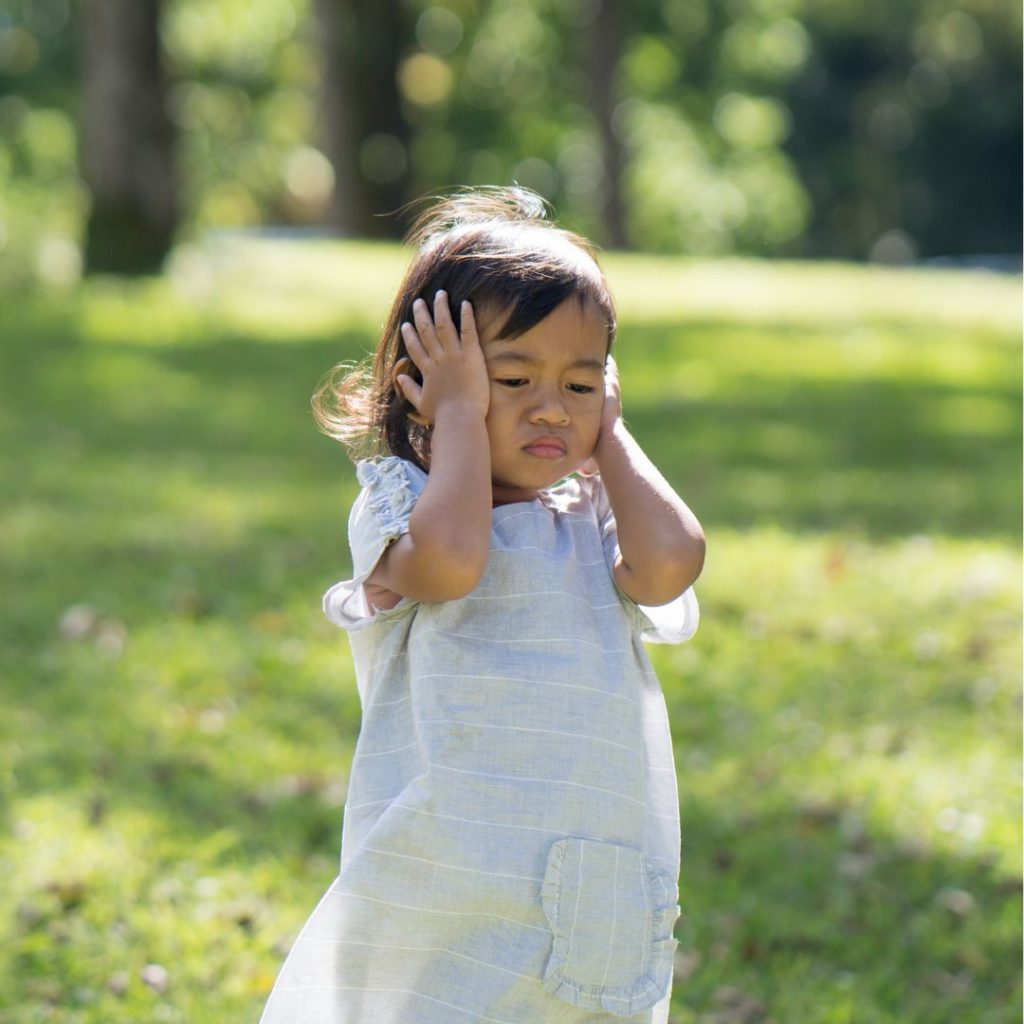How to Break Free from the Guilt Parenting Loop

Introduction
If you’ve ever laid awake at night replaying the day’s mistakes in your head, you’re not alone. So many of us Christian moms—especially when raising kids with ADHD—fall into what I call the guilt parenting trap.
It’s that cycle where we constantly ask ourselves: “Did I yell too much? Was I too soft? Did I miss another chance to do better?” This constant self-questioning can feel like a heavy weight, one that steals our joy and makes us feel like we’ll never get it right.
In this blog, we’ll unpack what the internal guilt loop is, why so many moms get stuck in it, and how it’s especially challenging when parenting a child with ADHD. We’ll explore the difference between healthy reflection and destructive shame, look at what Scripture says about guilt and grace, and learn practical steps to break free.
My prayer is that as you read, you’ll discover that you’re not alone, that God has already made a way out, and that you can learn to parent from a place of peace rather than pressure.
What is the Definition of Parental Guilt?
This post may contain affiliate links; at no extra cost for you, I get a small commission. Read our full disclosure here or in our privacy policy.
Parental guilt is the nagging feeling that you’re not doing enough, or that what you did wasn’t good enough. It’s the voice in your head that says, “I should have been more patient,” or “I should have handled that differently.”
In the context of guilt parenting, this becomes a pattern where every decision feels like it’s under a spotlight, and every misstep feels monumental.
For us moms of ADHD kids, parent guilt often comes with extra weight. Because our children need more guidance, more patience, and sometimes more creative parenting strategies, we naturally face more situations where things don’t go “as planned.”
The daily demands can make us feel like we’re failing, even when we’re simply doing our best.
But here’s the truth: parental guilt is not the same as being a bad mom. It’s often rooted in love—a sign that you care deeply about your child’s well-being.
The problem comes when guilt takes over, overshadowing the truth that you are a chosen and equipped parent. Romans 8:1 reminds us that “there is now no condemnation for those who are in Christ Jesus” (NIV). That includes in our parenting.
When we redefine parental guilt as an opportunity to check our hearts instead of condemn ourselves, we can shift from spiraling in shame to growing in grace.
It’s not about ignoring mistakes but learning to respond to them in a healthier way—with God’s truth guiding us.
What is Motherly Guilt?
Motherly guilt goes even deeper because it connects with our sense of identity. It’s not just about what we did or didn’t do—it’s about who we believe we are as mothers.
Many of us silently whisper things like, “I’m not cut out for this,” or “My child would thrive better with someone else as their mom.” That’s the essence of parenting guilt on a very personal level.
Motherly guilt often hits hardest in quiet moments—after bedtime, during car rides, or in conversations with other moms who seem to have it all together. Comparing ourselves to others only magnifies the guilt, especially when ADHD is in the picture. While other kids may sit quietly during church or finish homework without reminders, our kids might struggle, and we internalize their challenges as our failures.
But here’s the encouragement: God did not make a mistake when He gave you your child. Your child’s ADHD, quirks, and struggles are part of the unique plan God has for their life. And He chose you—with your personality, your story, and even your imperfections—to walk with them on this journey.
That truth is what counters motherly guilt.
When we remember that our role isn’t to be perfect but to be faithful, the guilt begins to lose its grip. Instead of saying, “I’m not enough,” we can learn to say, “With Christ in me, I am equipped.”
That mindset shift helps us move from guilt to gratitude.
What is Guilt Parenting?
The internal guilt loop is that endless cycle of second-guessing, overthinking, and self-blame that so many moms face. It often begins with a single moment—a meltdown in the grocery store aisle, a sharp word spoken in exhaustion, or forgetting to sign a school paper.
Instead of allowing ourselves grace, we replay that moment again and again, each time adding layers of self-condemnation.
For moms raising ADHD kids, this loop is even stronger. Why? Because our kids often need more structure, more patience, and more energy. That means there are more moments where we feel like we “missed it” or “didn’t measure up.”
The reality is, no mom gets it right 100% of the time. But when you’re stuck in guilt parenting, even the small missteps feel like massive failures.
The danger is that parent guilt begins to whisper lies: “You’re not enough. You’re failing. Your child would do better with someone else as their mom.” These thoughts are not from God.
Scripture reminds us of His promise: “I, yes I alone, will blot out your sins for my own sake and will never think of them again” (Isaiah 43:25 NLT).
That means guilt does not have to define us—God Himself has chosen to wipe it away.
Understanding the internal guilt loop is the first step toward freedom. Once we can name it, we can begin to interrupt it—and replace guilt with grace.
The Triggers Behind Guilt Parenting
Guilt parenting rarely comes out of nowhere—it’s usually triggered by certain patterns, pressures, or past experiences.
For many moms, one of the biggest triggers is comparison. We scroll through social media, see the “perfect” families with spotless kitchens and calm kids, and immediately think, I’m failing. But friend, that’s not the truth. What you’re seeing is a highlight reel, not the whole messy story.
Another trigger is unrealistic expectations. Sometimes these expectations come from culture, sometimes from extended family, and often from ourselves. We want to be the endlessly patient mom who never raises her voice, the creative mom who crafts Pinterest-worthy projects, and the spiritual mom who leads Bible time daily.
When we inevitably fall short, guilt rushes in. It whispers, See? You’re not good enough.
For ADHD moms, guilt can be even more intense. Maybe you’ve been told your child’s behavior is your fault. Maybe teachers or relatives suggest you’re “too soft” or “too strict.” Every impulsive outburst or messy homework moment can feel like a reflection of you instead of simply part of ADHD.
But this isn’t true—your child’s unique wiring isn’t your failure, it’s part of who God created them to be.
Finally, past wounds can stir guilt. If you grew up in a harsh home, you may feel shame whenever you raise your voice. If you grew up in a very permissive home, you might question every boundary you set.
These triggers matter, but they don’t define you. Naming them is the first step to breaking free from them.
Wish you had someone who gets it? Someone who understands the meltdowns, the misjudgments, the mom-guilt?
That’s why I became a parenting coach for moms of ADHD kids. Let’s connect and create a new way forward—with grace, strength, and Jesus at the center.

Guilt Parenting vs. Healthy Conviction
Not all guilt is bad. Sometimes, God gently convicts us of something we need to change—a tone we used, a lack of patience, or a habit that isn’t serving our family well. That conviction brings growth, not shame. It points us back to Him and invites us to try again tomorrow.
The problem is when conviction gets twisted into the cycle of parenting guilt. Instead of correcting the behavior, guilt makes us believe we are the problem. Conviction says, “That action wasn’t your best.” Guilt says, “You are a bad mom.” See the difference? One calls you higher, the other pulls you down.
When I realized this difference, it was like a light bulb switched on. I began to ask myself: Is this God’s conviction leading me to growth? Or is this shame dragging me into despair? That simple question helped me to filter my thoughts and reject the lies of guilt.
For ADHD moms, this is so important. We need to accept that parenting differently is not parenting wrongly. What works for another family may not work for ours—and that’s okay.
God knows our unique child, and He knows we are the exact mom they need.
How to Deal with Guilt in Parenting?
Dealing with guilt in parenting means learning to interrupt the cycle and replace it with grace.
- The first step is recognizing that guilt will come—but it doesn’t have to stay. The moment you catch yourself spiraling in guilt parenting, pause and pray. Even a short, heartfelt prayer like, “Lord, remind me of who I am in You,” can shift your perspective.
- The second step is to renew your mind with truth. Write down the lies guilt tells you—like “I always mess up”—and then replace them with Scripture-based truths—like “God’s power is made perfect in my weakness” (2 Corinthians 12:9 NIV). By anchoring your thoughts in God’s Word, you weaken guilt’s hold over your heart.
- Another practical way is to seek support. Parenting ADHD children can feel isolating, especially when others don’t understand the unique challenges. Surround yourself with other moms of ADHD kids or with mentors who can remind you of your worth and encourage you when guilt weighs heavy. Sometimes, hearing another mom say, “Me too,” is all it takes to break the shame cycle.
- Lastly, give yourself permission to celebrate progress, not perfection. Every day you show up, love your child, and try again—you’re winning. Dealing with guilt in parenting doesn’t mean never feeling it; it means learning not to let it define you. With God’s grace, you can walk free from guilt and parent with peace.
This is how we can deal with parenting guilt.
Breaking Free: Grace Over Guilt
Here’s the good news—you don’t have to stay stuck in the cycle of guilt parenting. God’s grace really is stronger than your guilt. Scripture reminds us, “As far as the east is from the west, so far has he removed our transgressions from us” (Psalm 103:12 NIV).
That means even on the messy days, you are not condemned—you are covered by grace and fully forgiven.
Breaking free begins with catching the guilt loop early. When you hear the thought I’m a bad mom, stop and ask, Is this guilt pointing me toward growth, or is it shame pulling me down?
Healthy conviction may guide us to apologize or adjust our approach. Toxic shame, however, just leaves us stuck in self-blame. The Holy Spirit never heaps shame—He leads with truth and gentleness.
Another step is practicing self-compassion in the moment. This doesn’t mean excusing harmful behavior; it means treating yourself with the same kindness you’d give another mom in your shoes.
You’d never tell your friend she’s a failure because her ADHD child had a meltdown in the grocery store—you’d hug her and say, You’re doing your best. You need to tell yourself the same.
Most importantly, breaking free means parenting with God, not just for God. Grace-based parenting flows out of His presence, not your performance.
When you measure your worth by His love instead of your child’s behavior, guilt begins to lose its grip. You don’t need to prove you’re a good mom—you simply need to keep walking with the One who entrusted this child to you.
Takeaway: Walking in Freedom from Guilt Parenting
If you’ve been caught in the cycle of guilt parenting, take heart—you don’t have to stay there. We’ve learned that the internal guilt loop thrives on self-blame and fear, but it crumbles when we invite God’s truth into the moment. Guilt may whisper that you’re failing, but conviction gently guides you to grow.
The key takeaway is this: guilt drags you down, but grace lifts you up.
The more we parent from grace—both for ourselves and for our ADHD kids—the more we’ll see peace and joy replacing shame and striving.
So, the next time guilt starts its loop, pause, breathe, and remember: You are not defined by your worst moments. You are defined by God’s love.
Parenting isn’t about perfection—it’s about walking with Jesus as we guide our children step by step. He chose you for this child, and His grace is more than enough.
Disclaimer
Everything shared in this blog is based on my personal experience, ADHD parenting training, and as a certified, ICF-credentialed life coach. I am not a medical doctor, psychologist, or licensed therapist. The content is for informational and encouragement purposes only and should not be considered medical or mental health advice.
If you suspect your child may have ADHD or any other medical condition, please consult with a qualified healthcare provider, such as a clinical psychologist, pediatrician, or psychiatrist, for an official assessment and diagnosis.
I specialize in coaching Christian moms who are raising kids with ADHD—helping you parent with grace, confidence, and faith. If you’d like personalized support, feel free to reach out and learn more about how I can walk this journey with you.






